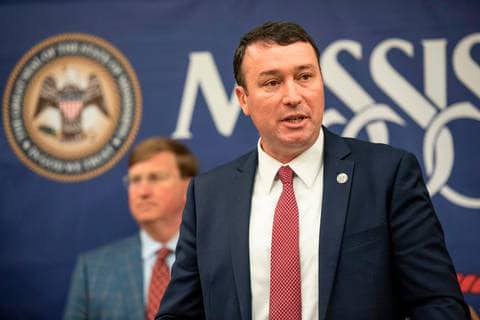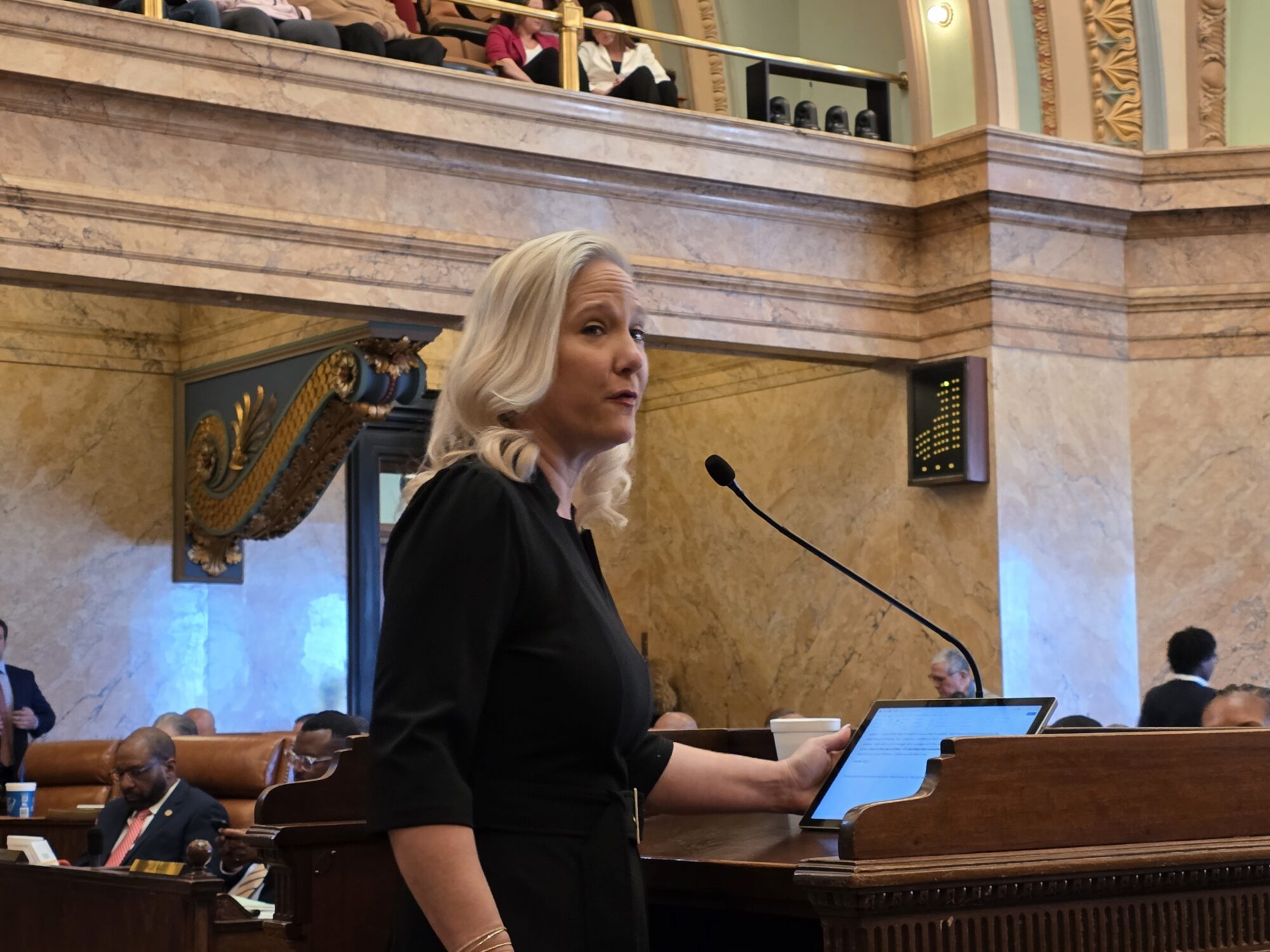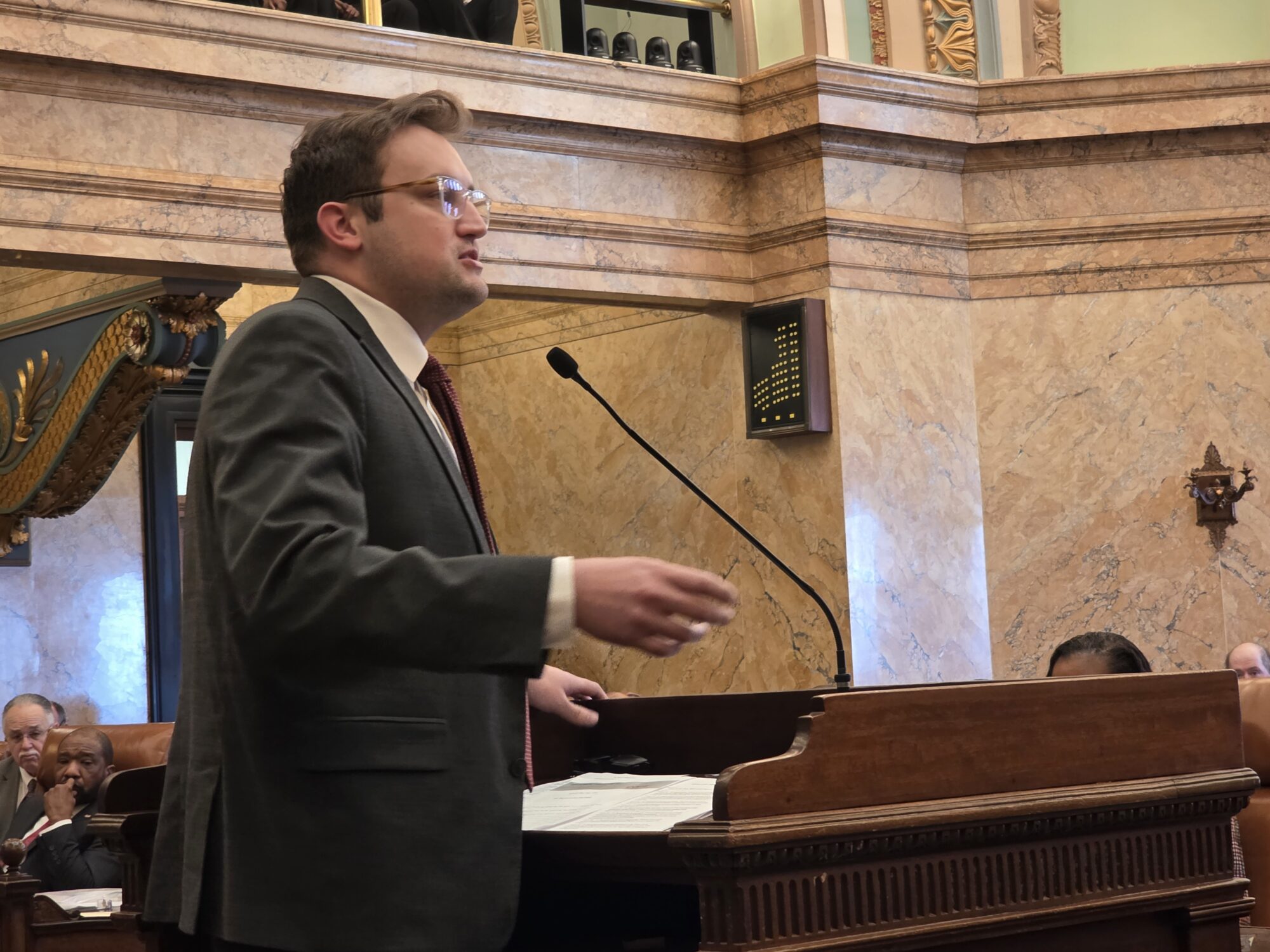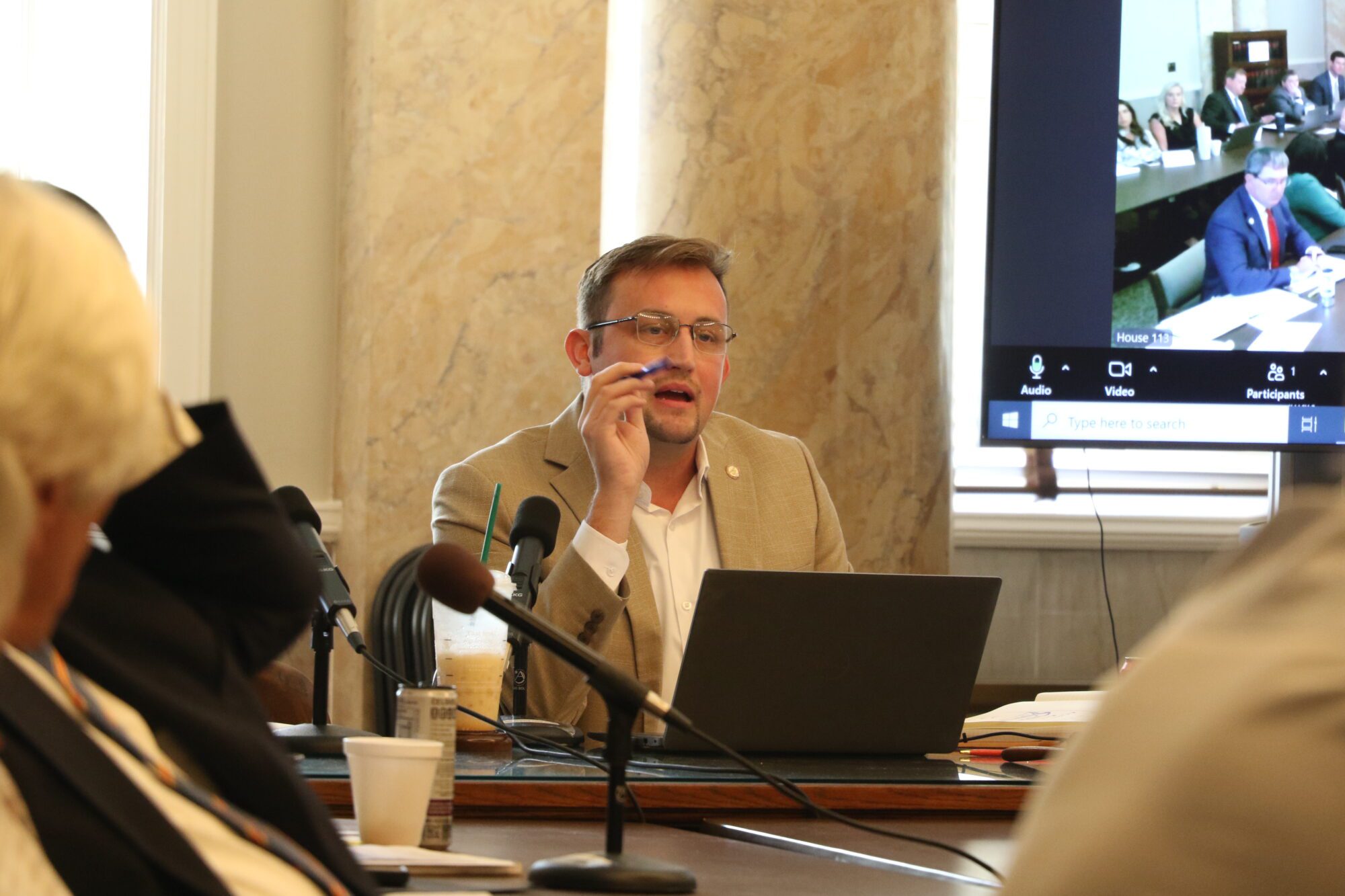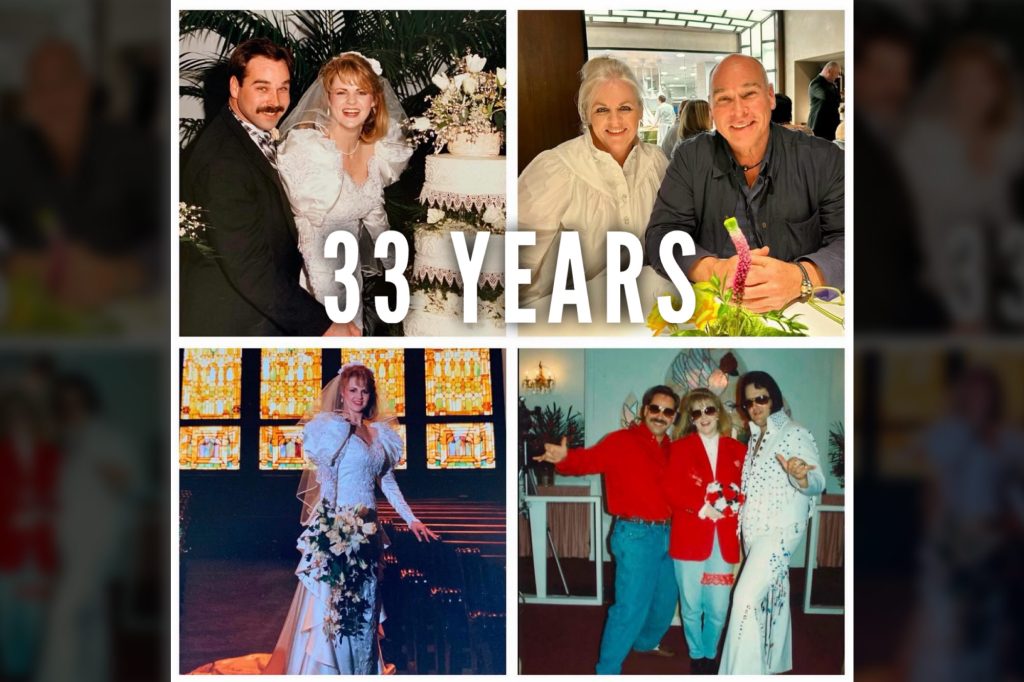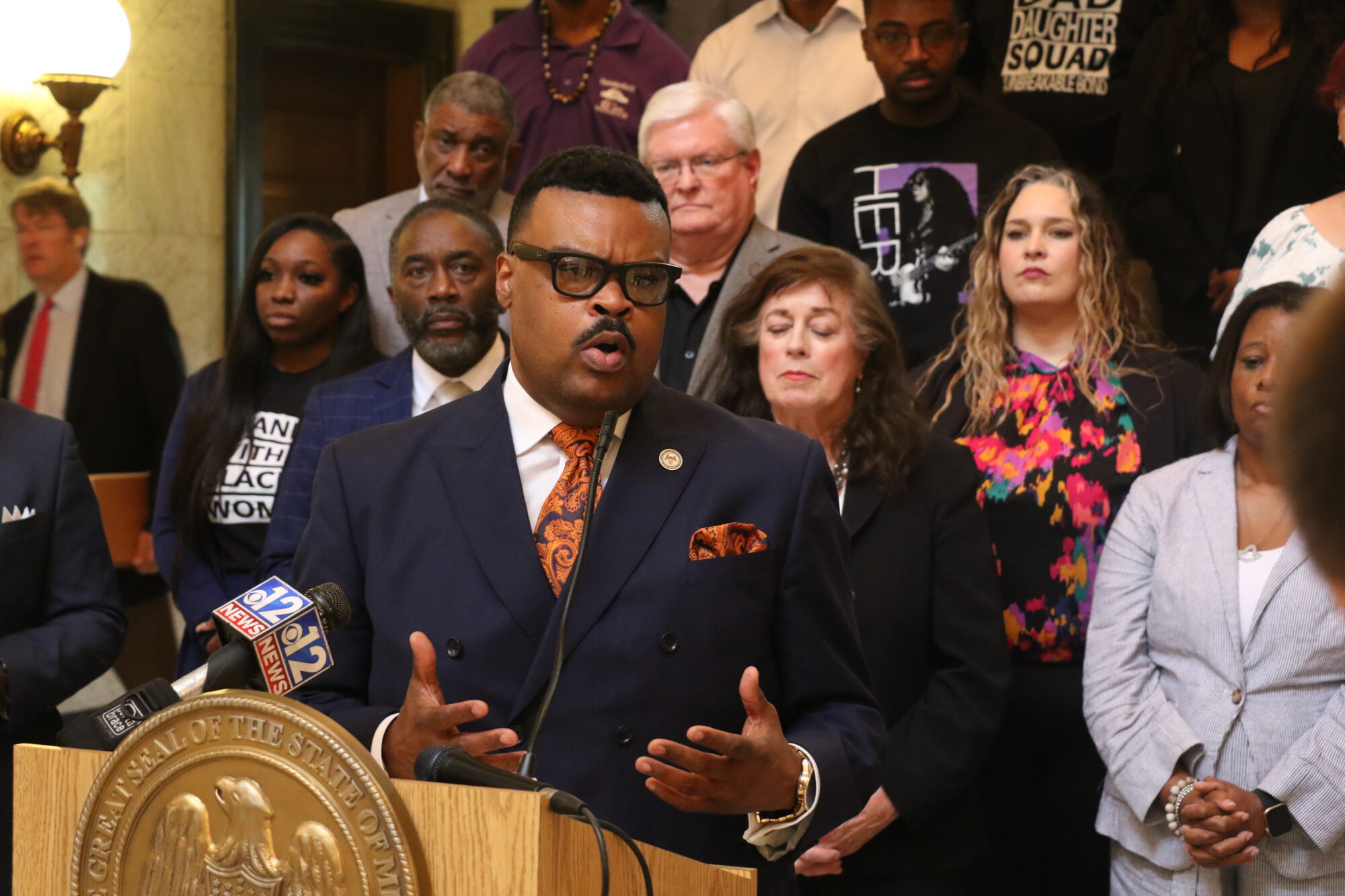
Rep. Kabir Karriem addresses the media during a press conference held Wednesday outlining the importance of restoring voting rights to those who have been convicted of non-violent crime and paid their debt to society on April 17, 2024. (Photo by Jeremy Pittari | Magnolia Tribune)
- The current suffrage restoration process in Mississippi requires a legislator to submit a bill on each person’s behalf.
Members of the Mississippi House of Representatives held a hearing and press conference Wednesday about the need for a law to universally restore voting rights for those convicted of non-violent crimes. A bill that would have achieved that goal died in the Senate.
This session, an attempt was made to create the law through HB 1609, passing on the House floor by a vote of 99-9. However, Senate Constitution Committee Chair Angela Hill (R) declined to take the bill up before the deadline. While Hill did not respond to a request for comment by press time, she previously told Magnolia Tribune that “the (state) constitution speaks for itself.”
Without a change in law, those convicted of one of nearly two dozen non-violent crimes can only regain voting rights through approval from the Legislature on a case-by-case basis. This session alone, more than 50 individual voter restoration bills were filed, said State Rep. Kabir Karriem (D).
According to the Sentencing Project, a non-profit organization with a focus on prison reform, in 2020, about 10 percent of Mississippi’s population was disenfranchised, the highest rate in the nation.
Currently, the suffrage restoration process in the state requires a legislator to submit a bill on each person’s behalf. It is then up to the Constitution Committee in both bodies to take up the bill. Rep. Karriem said that due to the Senate’s disregard of HB 1609, and similar bills in prior sessions, he is not optimistic the individual suffrage bills will go far.
“Once it passes the chamber it goes to the opposite chamber and the process starts back over. And most times it dies in the Senate,” Karriem said.
Wednesday’s hearing in response to the death of HB 1609 allowed those who have been affected by the current laws to share their stories. Some committed non-violent offenses and served their time, but remain permanently barred from voting. Others committed violent crimes, yet because of technicalities in the law, have maintained their voting rights, even while serving time in prison.
Kenneth Almons, now 51, was arrested two weeks after graduating high school at the age of 17 for aggravated assault and armed robbery. After serving five years, he was released and earned a certificate in culinary arts. He subsequently started and operated his own business for more than a decade. Today, he works for the city of Jackson. In the 28 years since he lost his voting rights, Almons said he hasn’t even been cited with a speeding ticket, but he still cannot cast a ballot on Election Day.
When asked what it would mean to him to get his right to vote back, Almons said, “It would mean I’m no longer considered a nobody, because when you don’t have a voice, you’re nobody.”
Maurice Clifton spent 23 years in a federal prison for aiding and abetting in the sale of cocaine and money laundering. Today, he does not have the right to vote. Clifton pointed out that there are states such as Maine where a person’s right to vote is never revoked, no matter the crime. State Rep. Robert Johnson (D) added that Vermont has a similar stance on voting rights.
Walter Lewis Jr., 49, was convicted of bank robbery, a crime he says he committed while in a state of depression due to the death of his father. He was sentenced to three years, with half of that time being suspended because he was not in possession of a firearm at the time of the crime. He is now a business owner, and still cannot vote for those who represent him.
“I want to make sure the person representing me is someone I voted for,” Lewis said.
Anthony Witherspoon, a former mayor who previously served time for a manslaughter conviction at the age of 21, also shared his story. Initially sentenced to 20 years with five years suspended and five on probation, Witherspoon served six years in prison. While serving that time, his research discovered a manslaughter conviction does not result in the loss of voting rights. Even while in prison, he was able to vote absentee by contacting his circuit clerk’s office and requesting a ballot. He then helped other inmates vote who had convictions that were not disenfranchising. After serving his time, he ran for, and was elected, mayor of Magnolia.
“I still vote. Not only do I vote, but I ran for office,” he stated.
With the death of HB 1609, it is up to the Legislature to consider those more than 50 bills to restore voting rights. The deadline for those bills is coming to a close as the session reaches the end, Rep. Karriem said.
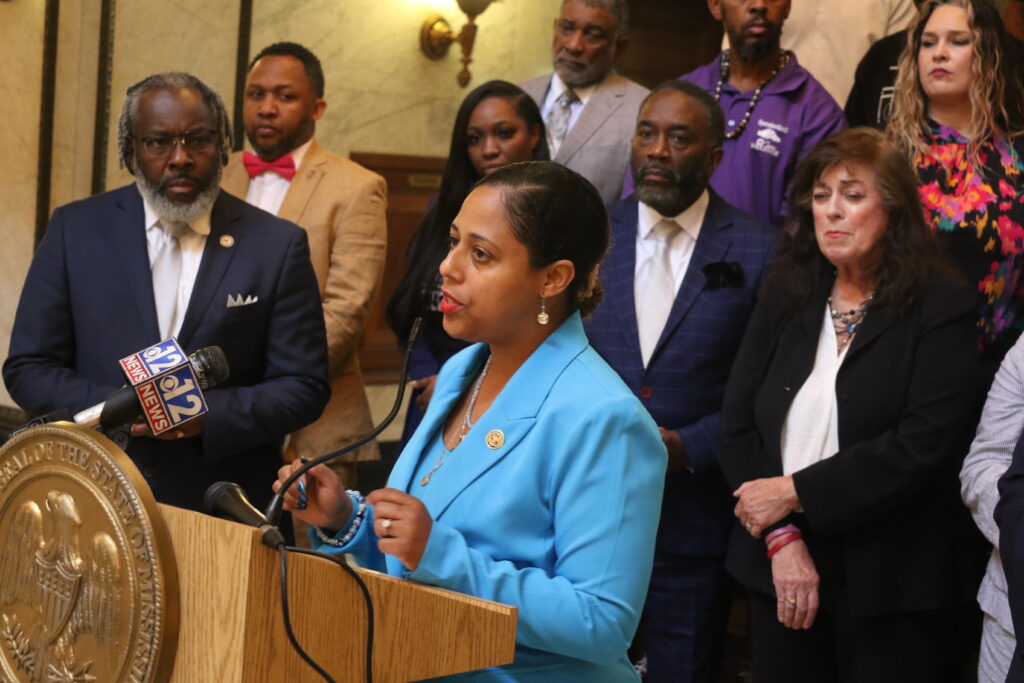
State Rep. Zakiya Summers noted that the current suffrage restoration process is cumbersome and terrible.
“It is an arbitrary system that does not work. We passed several suffrage bills last session out of the House, and sent them over to the Senate and the Senate let them die,” Summers said.
She said that the current system is rooted in racism, based on the state Constitution from 1890 that was formed with a list of crimes considered to most likely be committed by members of the black population.
“The list now has 23 crimes, and the state Legislature has an appetite to increase that list, which is terrible and horrible,” Summers described.
